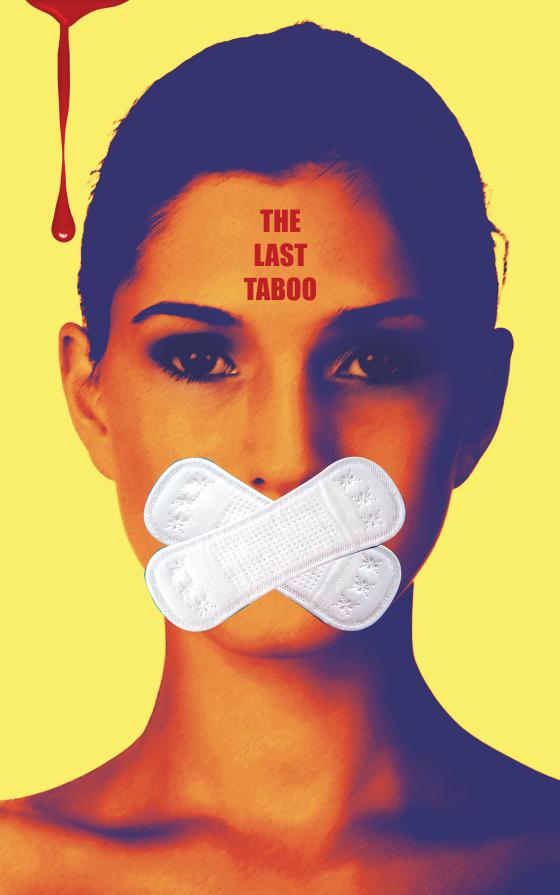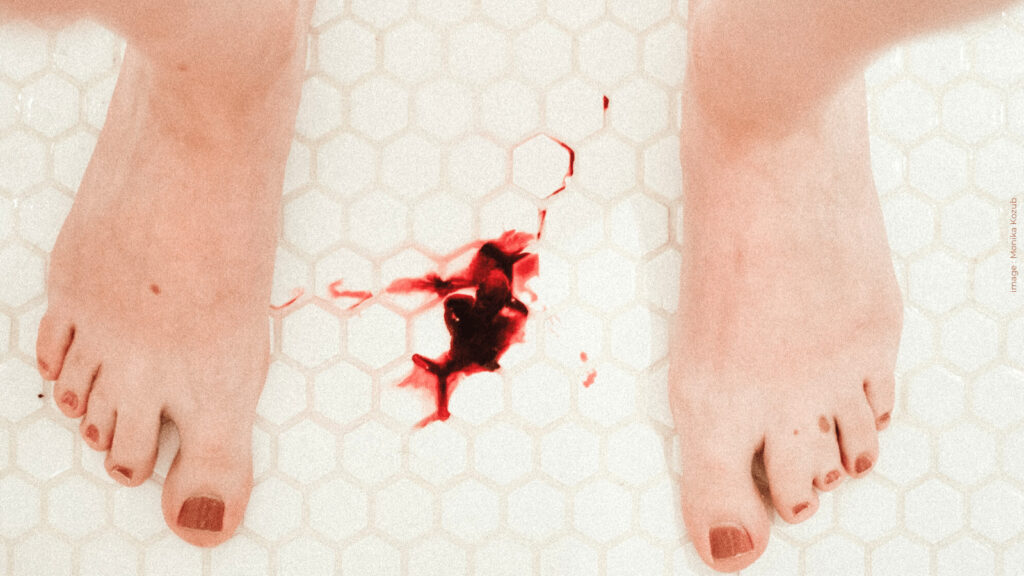Normalising periods begins with sharing the realities of menstruations – blood included !
For decades, advertisements for sanitary pads and other period products have visualised menstruation in the form of blue liquid being poured out of a test tube. It’s 2021 and about time for all of us to depict period blood in a more realistic manner. Because any menstruating person’s uterus is not a test tube and they are not bleeding blue !

Period Taboo Deeply Embedded In Us
Most of us still hate, if not feeling disgusted about our period. Often and unconsciously, we see them as inconvenient burdens. They make us miserable. They can never be over soon enough.
Some of us still blush whenever we’re forced to mention them. Why ? Because these feelings have been passed from generation to generation. We’ve been taught why periods happen and how our ovaries work. Very briefly. In cold technical terms. We’ve been told how to deal with it like it’s a painful cold sore.
Get it out of the way and don’t talk about it. Especially not with the boys! Many of us have been made fun of at school whenever we’d take our mortifying toiletry bag with us to the toilet. We’ve been conditioned to feel anxious. And so we have built a big fat barrier. Just like we have been told. ‘Keep it discreet’, they said, ‘no one must know’.
While blood can make ourselves super squeamish (who’s with us ?), it is a natural, healthy and essential biological process of any living creature with uterus.
Connecting with natural cycle of female body
While blood can make ourselves super squeamish (who’s with us ?), it is, in reality, a natural, healthy and essential biological process of any living creature with uterus.
In the times when most people live in separation from nature, the menstrual cycle is one of the few things which connect us to it. It’s long and slow enough to notice the distinct phases human body goes through. Yet, it’s also short and quick enough to observe its repetitiveness every month. This allows menstruating people to recognise the incredibles workings of biology that regulate the rhythm of life.
The Greek root of the words ‘Moon,’ ‘month’ and ‘menstruation’ is the same: mene. In some cultures, women’s menstrual cycle used to be seen as closely related to the lunar month, because the two are so similar in length and phases. While the lunar month is approximately 29.5 days, researchers found that the global average length of a menstrual cycle is 29 days.
Loving Periods As It Is
It is about time to see menstruation as a natural and essential biological process instead of a curse or a stigma. It’s natural and beautiful, rather than dirty and gross. It is about time for all of us, individually and collectively to preset the portrait of menstruating people as varied and diverse as possible.
Although menstruation stigma is only one of many systematic factors that perpetuate gender inequality, I find it to be a rather large one that we frequently ignore. My run was about using shock factor to create dialogue around menstrual health and comfort, so that women can start to own the narrative of their own bodies. Speaking about an issue is the only way to combat the silence, and dialogue is the only way for innovative solutions to occur.
Kiran Gandhi Tweet
Loving Periods As It Is
It is about time to see menstruation as a natural and essential biological process instead of a curse or a stigma. It’s natural and beautiful, rather than dirty and gross. It is about time for all of us, individually and collectively to preset the portrait of menstruating people as varied and diverse as possible.
Luckily, there are few positive period resolutions on how each of us can get involved and take immediate action :
(1). Say it ! use the word “period”. Call period as it is : the shedding of the uterine lining of any menstruating person. It’s not a bad word and shouldn’t be projected as something negative. It’s 2021, so time to stop stigmatise.
(2). Use inclusive language because each people who menstruate, experience periods in a range of different ways. Stop thinking of periods as one specific experience. An inclusive language helps, not only, to include all genders but also different ways / practices managing period too. Inclusivity is the way forward for sure.


